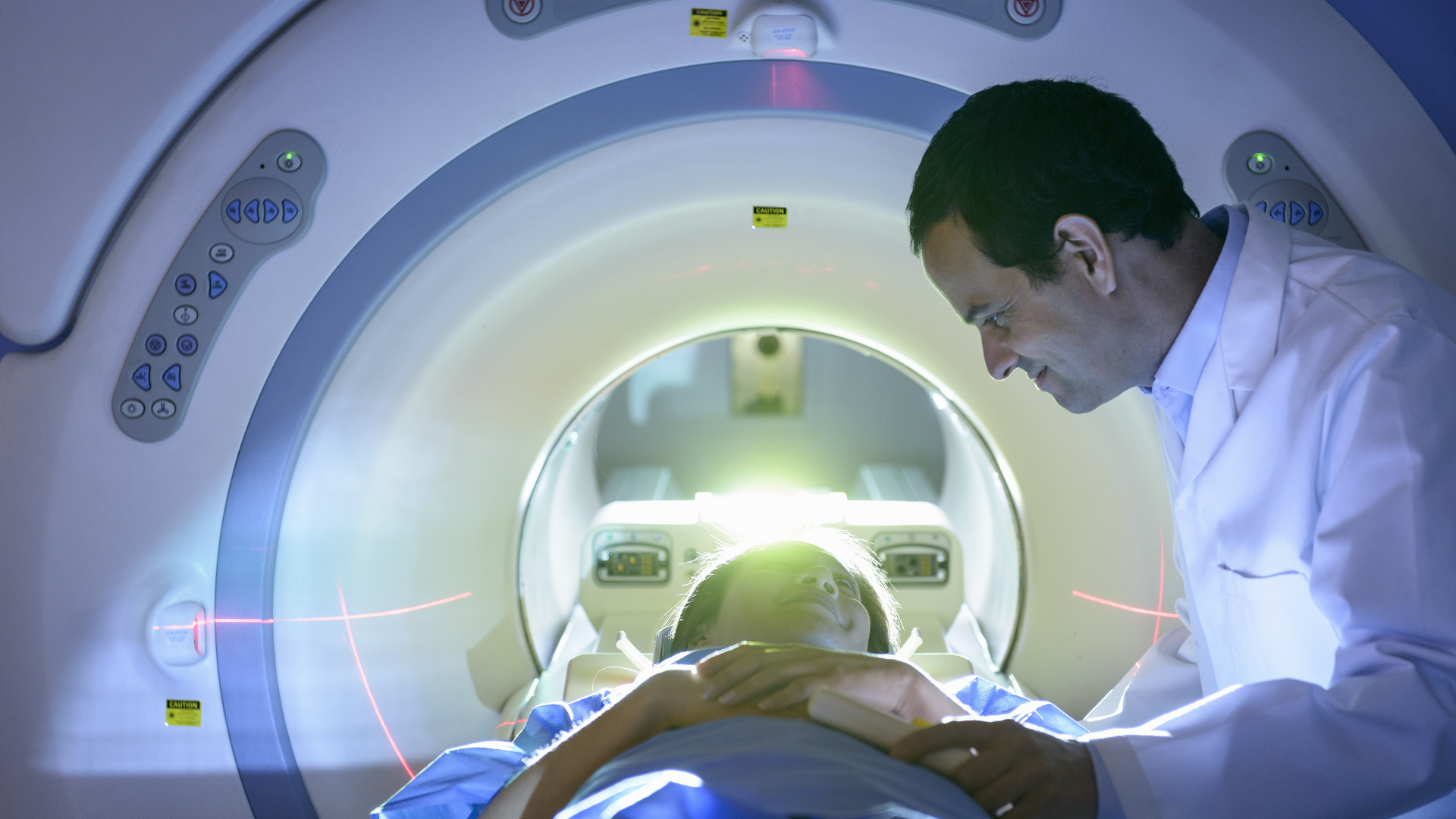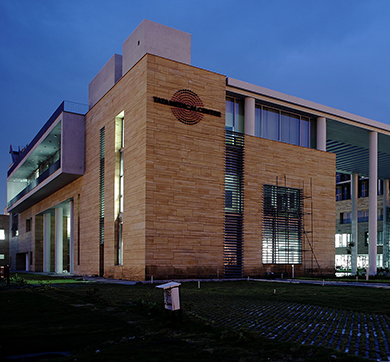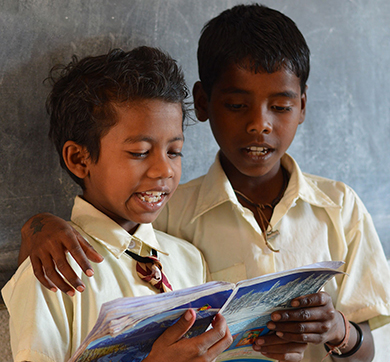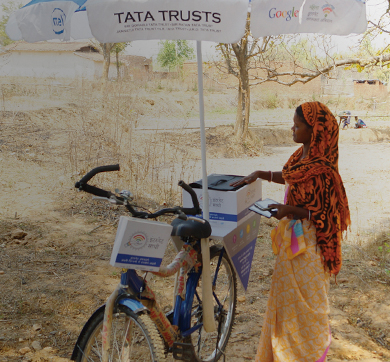September 2018 | 775 words | 3-minute read
Envisage this: Magnetic Resonance Imaging (MRI) scanners that are taken to the remotest parts of India on a mobile platform like a custom-designed truck.
Alternatively, these scanners can remain permanently installed at rural public health centres. The images can now be transmitted to a central location where radiologists can read the film and provide quick feedback,” says Arjun Arunachalam, founder and chief executive officer (CEO) of Voxelgrids Innovations Pvt Ltd.
Mr Arunachalam leads a team of engineers at Voxelgrids, an incubatee of the Tata Trusts’ Foundation for Innovation and Social Entrepreneurship (FISE). The foundation promotes socially relevant innovations and entrepreneurship to create large-scale sustainable social impact. It engages with entrepreneurs throughout their product lifecycle stages, providing critical incubation and mentorship support. The latest being the Voxelgrids’ portable scanner, which aims to make MRI affordable and accessible to everyone in India — a first in the country.
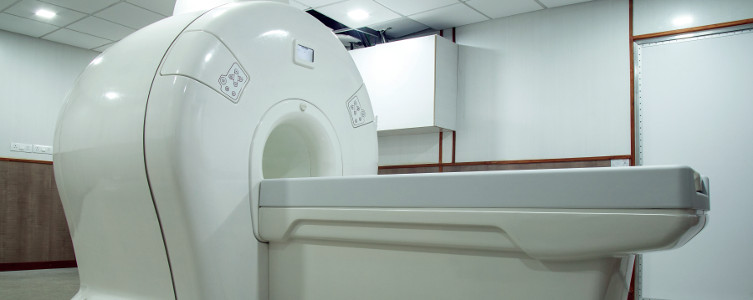
Manoj Kumar, the head of Innovation and Entrepreneurship at Tata Trusts and CEO of FISE, says, “Voxelgrids plans to reduce the cost of a MRI scan by a factor of three and reduce it by 60 percent from its current price. At the same time, it also improves the resolution quality and makes it more accessible and portable. It qualifies on all the parameters of inclusive and sustainable innovation.”
He adds, “The ecosystem to support such disruptive ideas needs to be created and nurtured. If we want to solve the problems of access and affordability in healthcare, we must promote science and technology innovations, build products and take these solutions to the poor and underserved. We have created the ‘Social Alpha’ architecture to ensure that innovations like these can be supported throughout their lab-to-market journey.”
The Problem
MRI scans provide a more detailed cross-sectional image when compared with other imaging modalities like X-ray. It is also completely safe because it is free of ionising radiation. However, the current MRI scanners are bulky and expensive, limiting their reach and making them unaffordable.
Furthermore, the imaging process itself is slow and an MRI scanner’s ability to image moving organs, such as the heart, is limited. As a result, the role of MRI in diagnosing cardiac disease, one of the top causes of death today, is inadequate. Voxelgrids’ MRI scanner aims to address these limitations.
“At present, MRI scanners available in the market are not owner- and patient-friendly. They are expensive, difficult to operate and demand stringent electrical conditions for safe operations. Despite the demand, an MRI scan is neither an affordable nor an easily accessible imaging modality for the average Indian. This prompted us to consider the development of a next-generation MRI scanner that is designed to make MRI accessible and affordable for all,” says Mr Arunachalam.
Enabling Ecosystem
But the road wasn’t easy. Voxelgrids faced multiple funding challenges that prompted them to relocate to Singapore to apply for a grant to further develop intellectual property. That changed when Tata Trusts picked them as an incubatee in 2016.
In terms of the technology, first, the team invented an imaging software technology that enables the use of next generation compact, inexpensive, lightweight and completely liquid helium-free MRI magnets. Then they combined these next-generation magnets with smaller, faster gradient coils to exceed the performance of current state-of-the-art scanners. Lastly, they invented novel imaging techniques that enhance the MRI scan speeds with potential applications in cardiac and real-time imaging.
The results are evident for all to see. Compared to standard MRI scanners, the 1.5 Tesla whole-body scanner with the sensible structured imaging protocols, weighs 2.3 tonnes (as opposed to the regular 4- to 6-tonne scanner), making it lightweight and portable. It costs approximately Rs. 3.5 crore, as opposed to the usual Rs. 5 to Rs. 8.5 crore, and cuts the cost per scan by 60%. It also scans three to four times faster, consumes less power and reduces the cost of switching 'on' and 'off'.
All of this has worked to enhance patient diagnosis. The Voxelgrids scanner contributes towards lowering costs while also enabling more patients to be scanned in a shorter time period, ultimately revolutionising diagnostic services in India. “These developments will also expand the scope of the MRI for diagnosing diseases,” Mr Arunachalam adds.
Voxelgrids plans to manufacture 180 MRI machines by the end of 2021.
Ratan N Tata, Chairman of Tata Trusts, has been instrumental in facilitating this project like the many others undertaken by Tata Trusts to promote social entrepreneurship. “Innovation and entrepreneurship require creativity, hard work and endurance to succeed. I am pleased that the MRI project team has demonstrated this,” he said following the launch. “It also requires an enabling ecosystem to ensure that the most talented innovators are encouraged to take entrepreneurial risks and create positive social, economic and environmental impact.”
MRI scanners are built in only a handful of countries around the world because building them requires an inter-disciplinary effort involving RF engineering, mechanical engineering, MRI physics as well as advanced software skills. A successful effort of this sort requires all these skills to function seamlessly. That an innovation like this has been achieved under one roof in a short span of 24 months makes it a breakthrough effort.
—Esther Cabral
